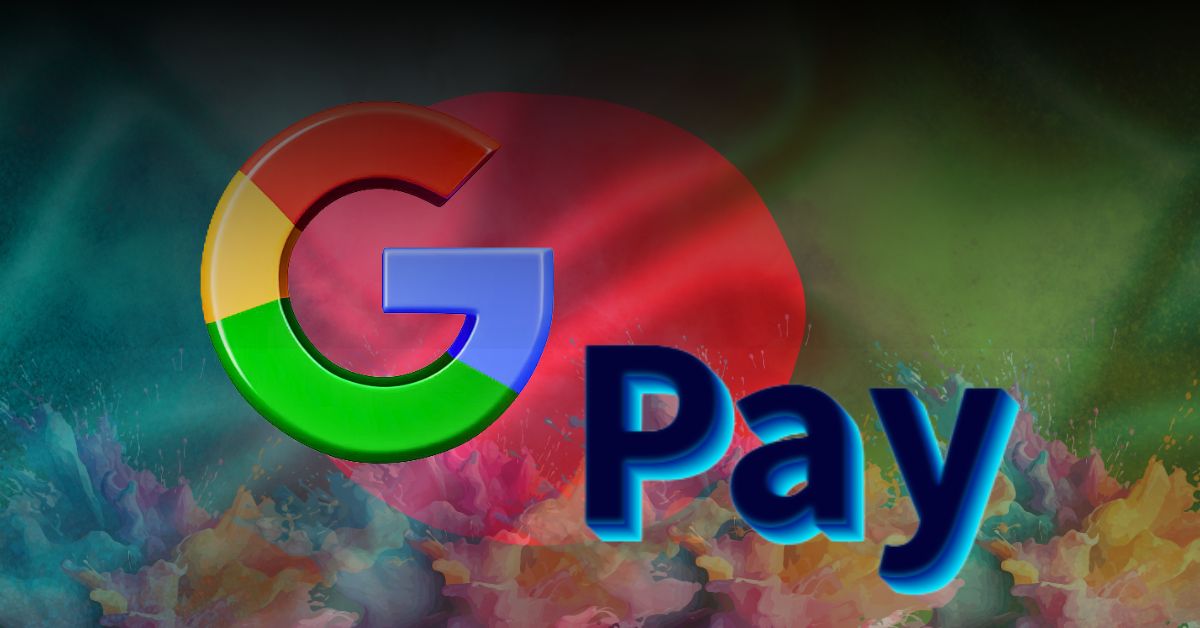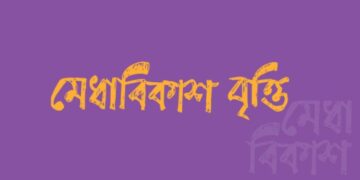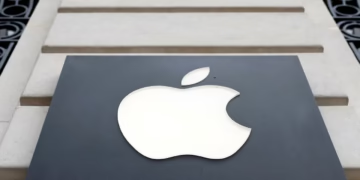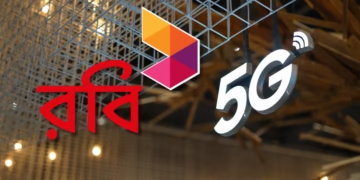The arrival of a tech behemoth such as Google in any nation’s fintech sector must be something to be welcomed. But the recent “launch” of Google Pay in Bangladesh must be best described as lacklustre and an opportunity missed. For a country that has embraced digital payments with such alacrity, this “launch” in Bangladesh feels like no dedicated effort to penetrate the market at all but more of a tentative, half-hearted trial. What Bangladeshi consumers have received is not the full-featured, sophisticated Google Pay that the rest of the world is accustomed to but a very watered-down variant that remains a novelty for an elite segment of the population.
A Featureless Service for the Few
Let us be specific about what Google Pay is in Bangladesh today: it is nothing but a “tap to pay” feature, and that too only for City Bank’s Mastercard and Visa cardholders with an NFC-capable Android phone. That rules out the vast majority straight away. In a country where Mobile Financial Services like bKash, Nagad, and Rocket have made deep inroads in the market by being accessible to anybody and everybody irrespective of bank and model of phone, Google’s approach comes across as elitist and out of touch with the local environment.
The service lacks the same function that makes Google Pay a compelling product elsewhere. There are no peer-to-peer (P2P) payment transactions, a mainstay of digital payments in Bangladesh. You can’t pay a friend, pay a local grocer who doesn’t have a POS machine, or make frictionless in-app and e-commerce payments. Not being able to do simple tasks that the local MFS providers have mastered over the years makes Google Pay essentially useless for everyday usage in Bangladesh.
No Threat to the Real Digital Payment Royals
The video analysis confirms that Google Pay, as it currently stands, does not pose any threat to the current MFS industry. bKash and Nagad are not just payment apps but complete financial platforms where people can send money, pay bills, receive salaries, and even save money. They have created a huge network of agents all over the country, and they have taken digital finance to the remotest parts of the nation.
Google Pay “tap to pay” is solving a non-problem for the average Bangladeshi. It does have the advantage of not needing to carry a card, but it doesn’t solve any of the real problems, such as outrageous cash-out charges on MFS channels or higher acceptance of digital payments in the informal economy. It is an urban, banked, and tech-enabled elite service, skipping over the masses who are the lifeblood of the country’s digital economy.
A Disappointing Glimpse of What Could Have Been
The launching of Google Pay in Bangladesh is similar to being invited to a banquet and being provided with a plain cracker. The options were limitless. Google possessed the technological capability to introduce a game-changing product, perhaps integrating with existing MFS platforms or creating a more inclusive solution. What has been presented is a barebones offering that looks like an afterthought. It’s a half-hearted launch that has left tech folks and ordinary consumers wondering what the point is. Until Google decides to introduce its full capabilities along with a more inclusive approach, Google Pay will be a footnote of irrelevance in Bangladesh’s otherwise vibrant digital payment story.
The Neutral Perspective: An Objective Overview of Google Pay’s Current Service in Bangladesh
Following recent events, Google introduced a payment service in Bangladesh based on its Google Wallet app. The service enables individuals to pay contactless at the point of sale. The following is a factually based overview of the service based on analysis of information available, including a highly viewed Bengali explanatory video.
Service Functionality and Availability
The principal new feature introduced is “tap to pay” using Near Field Communication (NFC) technology. Using this, a customer can pay by tapping his NFC-capable Android mobile phone close to an enabling POS (Point of Sale) terminal. The payment is made without the actual use of the debit or credit card.
Currently, the service is provided to the customers of just one bank, which is City Bank. The customers must possess a Visa or Mastercard issued by City Bank to have the capability to add the card to Google Wallet. Therefore, access to the service is subject to being a customer of City Bank with one of the two cards and the possession of an appropriate Android phone.
Comparison to Existing Mobile Financial Services (MFS)
Bangladesh also boasts a mature and well-established Mobile Financial Services (MFS) market driven by operators like bKash, Nagad, and Rocket. It is very important to distinguish the role of Google Pay’s current product from these MFS operators.
Payment Method: Google Pay allows payment through card-based payment via the phone. MFS platforms operate on a stored value account approach that can be accessed through smartphone apps or USSD codes on feature phones.
Core Features: The core feature of Google Pay at present is contactless in-person payments. More MFS services are provided by MFS operators, including P2P money transfers, bill payments, mobile recharges, QR code-based merchant payments, and agent-based cash-in/cash-out facilities.
Market Impact: According to the video analysis, Google Pay’s existing limited functionality guarantees that it does not compete with MFS providers’ core services. Its market is a sub-set of the banked segment with the necessary cards and phones, whereas MFS services have a far broader base including the unbanked.
Read More: Akij Group: Pan-China Collaboration Begins with MoU to Broaden Business Horizon
Missing Features and Regulatory Context
There are certain features that Google Pay shares in other nations but are yet to be launched in Bangladesh. They are P2P transactions, in-app and e-commerce payment integration within the Google Pay environment, and withdrawal at ATMs through the phone.
Other than that, Bangladesh’s financial regulations carried out by the Bangladesh Bank include international transaction limits. International payment functions without endorsement (e.g., passport endorsement) are not expected to be introduced, consistent with national policies in place.
Briefly, Google has rolled out a specific feature—NFC-based “tap to pay”—for a specific niche of customers in Bangladesh. The service has only one unique use case and does not overlap significantly with the overall financial services of the country’s incumbent MFS platforms. The potential for long-term growth of the service would depend on collaborations with more banks and the potential rollout of a more comprehensive feature set by Google.
The Positive Outlook: A Glimpse into the Future As Google Pay Enters Bangladesh for the First Time
The era of payments has arrived in Bangladesh! The official introduction of Google Pay’s “tap to pay” facility is a pioneering step in introducing one of the world’s most advanced payment technologies to our nation’s fast-changing digital landscape. The roll-out may be phased in the beginning, but it is a catalyst for innovation and a sign of how prepared Bangladesh is for the future of financial technology. This milestone achievement, explained in detail in a widely circulated Bengali video, is more than an addition to a feature set; it’s a look into a simpler and more secure tomorrow.
The Dawn of a New Era: Convenience and Security
Bangladesh consumers, led by City Bank Visa and Mastercard cardholders, can for the first time now enjoy the wonder of real contactless payments. To just tap your phone at the checkout to make a payment is a convenience breakthrough. It entails quicker checkouts, no more fumbling into your pocket to rummage out cards or cash, and one less thing to carry in your pocket.
Most notably, this technology brings with it a world-class security feature in the form of tokenization. When you put your card into Google Wallet, your real card number is replaced with a unique digital token. The token, not your real card details, is then used to make purchases, meaning your real card details are never revealed to merchants. This introduces a level of security which is a real improvement over traditional card transactions, protecting users from potential fraud and enabling them to have even greater peace of mind.
Read more: Why Citycell couldn’t survive the telecom race
A Catalyst towards a Smarter Digital Bangladesh
The entry of a world giant like Google is a massive vote of confidence in the digital advancement of Bangladesh. It puts Bangladesh on the global map of technology and finance that can attract more investment and innovation. This move is going to introduce healthy competition, and local banks and fintech firms will have to step up their game.
As more banks inevitably become a part of the Google Wallet, this seamless payment experience is made available to millions more. The NFC payment normalization and deployment will also encourage more retailers to adopt new POS systems, and we will be that much closer to a cashless society. That is the first building block. From here, we can anticipate incremental deployment of more much-loved Google Pay features like frictionless payments online and in apps and person-to-person transfers.
Embracing the Future, One Tap at a Time While it’s easy to decry that the service is opening with a niche market, that’s how all revolutionary tech begins. The first automobile wasn’t produced for the masses, but it showed the world what is possible. Similarly, the opening of Google Pay in Bangladesh is showing us the future of retail.
It is a moment to be celebrated. It is a powerful new weapon in the hands of consumers and a stepping stone on the journey to the government’s “Smart Bangladesh” vision. A journey of a thousand miles begins with one step, and with the introduction of Google Pay’s “tap to pay,” Bangladesh just made a big and exciting step into the future of digital payments. The best is yet to come.
Reference
The Daily Star
Country Today
Prothom Alo
Industry Insider
Dhaka Tribune
banglanews24.com
Zoom Bangla news



















